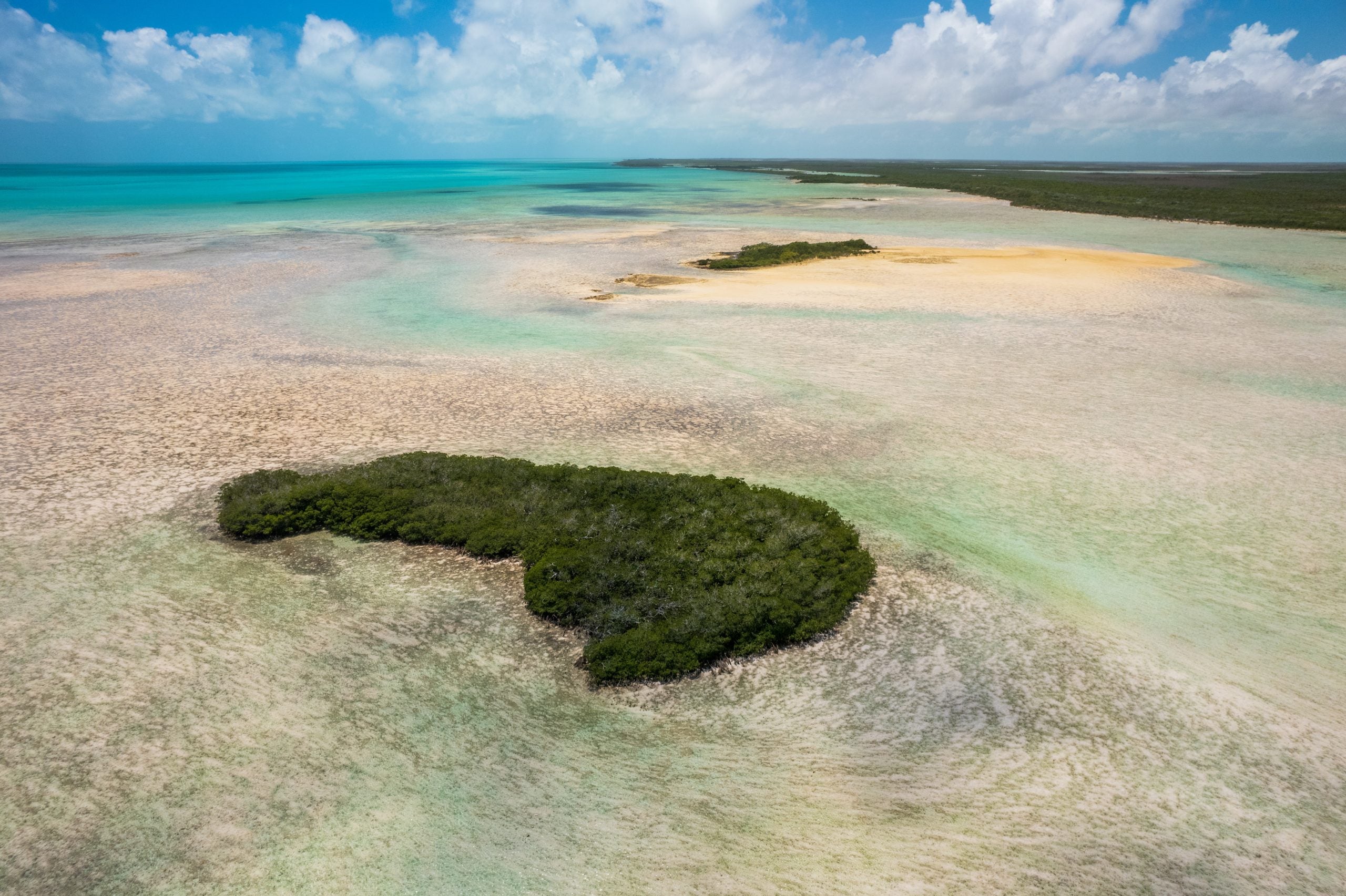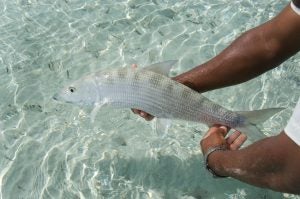Local knowledge is key to understanding climate impacts on fisheries

By Gemma Carroll, Jacob Eurich and Krista Sherman
Shervin Tate is a recreational fishing guide in The Bahamas, known locally as the Bonefish Specialist. He takes visiting anglers by boat to fish remote beaches and shallow water flats flanked by mangroves. The ultimate prize for his guests is landing and releasing a bonefish: pound for pound, one of the strongest sportfish in the world. Shervin assesses the conditions to select the perfect place to fish, then he and the angler scan the flats for where to target the next cast. Catching a bonefish is a challenge and a thrill – the angler must carefully stalk their prey, entice the fish to bite their lure or artificial fly, then fight hard to reel in up to 15 pounds of sleek, silvery muscle. After a long game of tug-of-war and a photo with the still-wet fish and still-grinning angler, Shervin expertly releases the bonefish to rejoin its school.

Fishing guides like Shervin are the backbone of a multi-billion dollar sportfishing industry in the Caribbean. These guides have been bonefishing the same tidal flats for decades and have seen the impacts of climate change firsthand. They learn at an early age how bonefish seek out the shade of mangroves to escape warming waters and how powerful storms can impact sensitive nearshore ecosystems. Shervin recalls the devastation of Hurricane Dorian, the strongest hurricane on record in The Bahamas, and the slow recovery of the tidal flats in the years since.
“2019 was a tough year for all the guides in my community with Hurricane Dorian. We saw our mangroves, flats and coastal area destroyed. Our flats had been chewed right up…Now I’m excited to see the bonefish returning and the crabs crawling into the new mangrove areas. Things are coming back that I never thought I would see return.” This “on the water” knowledge that stakeholders like fishing guides have about both the vulnerability and the resilience of the places where they live, work and play can make enormous contributions to the science of how we understand and plan for climate change.
“With all the time they spend on the water, these fishing guides have their Ph.D. in the tidal flats. They have a wealth of knowledge on topics like fish population dynamics, marine ecology and oceanography.” – Sepp Haukebo, EDF, Senior Manager, Global Fisheries Initiatives
In 2022, the Environmental Defense Fund led a participatory study to assess how vulnerable recreational fisheries in the Caribbean will be to climate change. Participatory research involves working collaboratively with stakeholders to conduct research relevant to their needs and interests. EDF convened a virtual two-day workshop with people involved in the recreational fishing sectors in The Bahamas and Belize as guides, fishery managers, or science and policy experts. This stakeholder group helped design the workshop and used research by EDF scientists plus their local knowledge to score the vulnerability of key species like bonefish to expected climate change impacts.
The group co-authored a paper published in Frontiers in Marine Science last week that presents evidence from scientific sources and stakeholders “on the water” knowledge suggesting that climate impacts, including ocean warming, storm damage and sea level rise, are worsening in the Caribbean. This is bad news for species like bonefish, which are highly sensitive to high temperatures and habitat disturbance. It could also be bad news for recreational fishing tourism and guiding livelihoods, which rely on anglers coming from afar to spend their money in local communities with the promise of catching abundant fish in pristine waters.
But despite these concerns, stakeholders in the workshop were generally optimistic about the future. They identified ways that both the fish and recreational fisheries are resilient and suggested various strategies for mitigating and adapting to climate impacts in their communities. Dr. Krista Sherman, Senior Scientist at the Perry Institute for Marine Science in The Bahamas, participated in the workshop and said the group’s recommendations come at a good time.
“Reducing knowledge gaps regarding the impacts of climate change is becoming increasingly important in The Bahamas and throughout the wider Caribbean. Our work offers some logical next steps that individuals, governments and interested community members can take to enhance ongoing initiatives such as habitat restoration and help build climate-resilient fisheries, ecosystems and livelihoods.”
Participatory studies like this can help us better understand and plan for life in a rapidly changing world. Engaging local communities in climate change research and co-developing adaptation strategies are critical to ensuring that climate science meets the needs of communities at scales that matter and that benefits are shared more equitably. By creating space to listen to the voices of people on the front lines of climate change, we can ensure that local wisdom is a guiding force behind the design of climate-resilient solutions.










